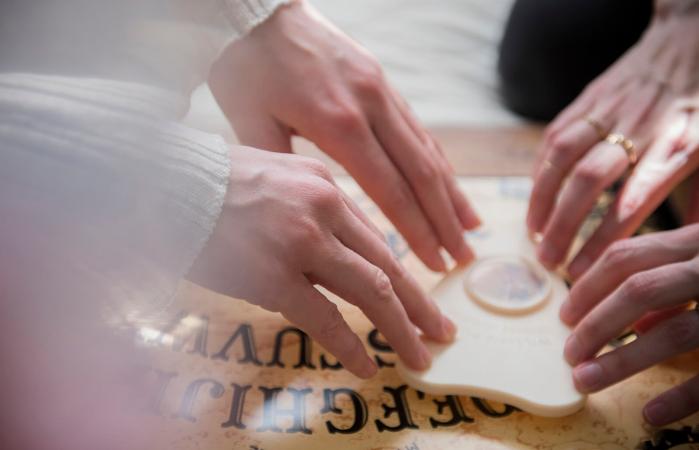Our family of origin teaches us our self-esteem. It is based upon an evaluation we form of ourselves about our personal competence and self-worth. The bad news: low self-esteem becomes a habitual, self-defeating way of reacting in the world. You forgo a level of personal responsibility and follow a path of passivity. Events happen to you instead of you making events happen. Successes are discounted and failures are noticed. Anything “good” that happens is viewed as luck, chance, fortitude or a fluke! When mishaps occur, you identity your core being with the failures instead of viewing the failures as temporary events. On the other hand, the good news is since self esteem is a learned behavior, you can unlearn, relearn and change it.
So, where can you find healthy self-esteem these days, especially if you have been on this path of low self-esteem for some time? For one, it is not found in the past. Regardless if you learned your poor self-esteem from childhood, you cannot go back and retrieve it. In fact, healthy self-esteem is always found in the present by changing your current state of mind. You can learn to raise your self-esteem while uncovering the truths about yourself, and this comes down to one main tenet. This tenet asks you to change your decision about yourself by changing your evaluation of yourself today, in the here and now!
As Eleanor Roosevelt pointed out, “No one can make you feel inferior without your consent.”
The truth is that no one can “make you” feel anything if you do not buy into it in the first place.
You must learn to buy into believing in yourself and not into perpetuating your own assaults on your self-worth. There will always be naysayers and critics out there, but their beliefs are not your truths, but only truths about themselves.
So what does healthy self-esteem look like? Studies show that high self-esteem correlates to how successful one is in life. A person with a healthy self-esteem not only feels good about oneself, but also, most importantly, establishes a sense of personal and social responsibility. Personally, this person takes responsibility for their strengths, knowing that their perseverance allowed them to succeed. They admit their mistakes, knowing that their weaknesses and failures are opportunities to realign themselves with their goals. They know that all people make mistakes and do not interpret their mistakes as indicative of their self-worth. Socially, they acknowledge the strengths and successes in others and do not have the need to compete or compare themselves with others.
So, how do you raise your self-esteem? Here are several tips for developing your self-esteem quotient:
1. Be open-minded – hear critique and criticism, but only hear them as half-truths. Everyone has their own side to a story, as do you and other people who know you. If you feel badly about some critique you received, do not stew on it, instead ask another you respect what their take is. Do remember, that one’s negative talk about another is often just a projection of one’s own internal conflicts and fears. They dump these fears instead of owning them.
2. Start praising – and stop critiquing. By accepting others and their weaknesses, you start to accept yourself. When you stop finding fault in others, you learn to let up on yourself. This includes, stop criticizing yourself! Learn to view your failures and weaknesses as milestones to guide you on your way. Often you learn the most under pressure and from our hardest times.
3. See successes – take appropriate credit for your successes. Chalk them up to dedication, hard work and your positive thinking. Do not believe in luck and chance. Instead, know that you magnetized your successes to you through an extension of your energy and efforts. Accept responsibility. Praise the successes in others. Know that their successes open the door to yours.
4. Accept weaknesses – know that everyone makes mistakes and no one is perfect. View your failures and weaknesses as temporary statements about your existence. By no means are they permanent, unless you perseverate about them. Ask yourself what your ideal person with healthy self-esteem would do to move forward. Conjure up the answer and focus on the solution. Think present, not past!
5. Provide Self-care – pay attention to the needs of your heart, mind and body. Follow their lead and learn from yourself. When you learn to listen to your needs and wants and take action to meet them, you elevate your self-worth. You become important. How you treat yourself is how others learn to treat you. This means accept compliments from others regardless of your belief behind their motivations. Look the complimenter in the eyes and say, “thank you.” They are immediately rewarded and acknowledged for their compliment and you are establishing patterns for more compliments in the future. Compliments definitely help in dire times and become a way of receiving instant, external confirmation and validation.
6. Have goals – be the person you are and become the person you want to be. In other words, participate in the act of living your life. Make choices. Be proactive. Try something new or give yourself permission to do something you have always wanted to do. Be gentle with your imperfections and shortcomings, and do not allow them to become road blocks. Let go of perfection and focus on direction. Your road to a healthy self-esteem is paved by your choices in the present. Change the way you evaluate your experiences and you can change the way your feel about yourself. Low self-esteem continues out of practice of bad habits. You can change a habit after thirty days of instilling a new behavior. Give yourself one month for practicing the above tips and you will see a major difference in the growth of your healthy self-esteem.
Karen A. Dahlman ©


 Is a Publishing House providing writings, audios & videos that inspire readers to follow their hearts, their Higher Selves and expand into their infinite possibilities of expression!
Is a Publishing House providing writings, audios & videos that inspire readers to follow their hearts, their Higher Selves and expand into their infinite possibilities of expression!










